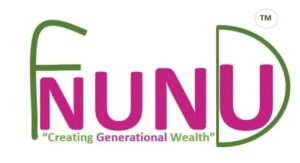Uganda faces a critical education crisis deeply intertwined with systemic poverty in its rural communities. With an average of five children per family and over 70% of Ugandans relying on subsistence farming, financial hardships force many children to drop out of school. Only 40% complete primary education, and a mere 16% finish upper-secondary education. Middlemen exploit small-scale farmers by purchasing their produce at minimal prices, trapping families in a vicious cycle of poverty and limiting access to education.
The Solution
The Solution
NUNU Fund breaks the systemic intergenerational poverty in rural peasant communities by replacing middle-men and linking agriculture directly to education in an innovative system of micro investments and increasing school completion rates by 50%. It has two main components:
- SeedBank for Education
Buying produce directly from small-scale farmers at fair and double price of what middle-men offer and in collective bulk paying school fees with the staples like beans and maize at schools, where the peasants’ children study from. The schools feed the children with the staples.
- Payback and Saving System
Enabling peasant households to benefit from our community shops for basic needs, where a 20% payback automatically saves money on their savings’ accounts which are saved for the long-term with interest and dedicated to pay only school fees or cover medical emergencies. Poor families typically buy the smallest possible quantities, like one cup of rice in community shops at extremely high prices if you would convert the price per kilo and compare it to a 50 KG sack of rice. The 20% seem little but for families living in extreme poverty, this is a lot and they flock to our shops because of it.
By empowering farmers with fair prices and linking their produce directly to their children’s education, NUNU Fund creates a sustainable cycle of growth and development. Families gain financial stability, can handle emergencies, and invest in their children’s future. The model has increased incomes, improved education access, and enhanced financial resilience among the communities served.
What sets NUNU Fund apart is its innovative integration of agriculture, education, and financial empowerment. By bypassing middlemen, it ensures farmers receive fair compensation, challenging traditional power structures and disrupting exploitative systems. This holistic approach addresses multiple facets of poverty simultaneously—boosting income, improving access to education, and enhancing financial security. Decisions are made collaboratively with community members to ensure initiatives meet their real needs.
The Story Behind NUNU Fund
The founder Albert Rwakimari grew up in a rural Ugandan community, experiencing firsthand the struggles of poverty and barriers to education. Coming from a family of peasant farmers who struggled to afford school fees, the founder was forced to drop out of university due to financial constraints. This pivotal moment ignited a passion to create a solution that would prevent others from facing the same hardships. NUNU Fund was born out of this personal journey, aiming to support vulnerable peasant households in paying school fees for their children and breaking the cycle of poverty.

